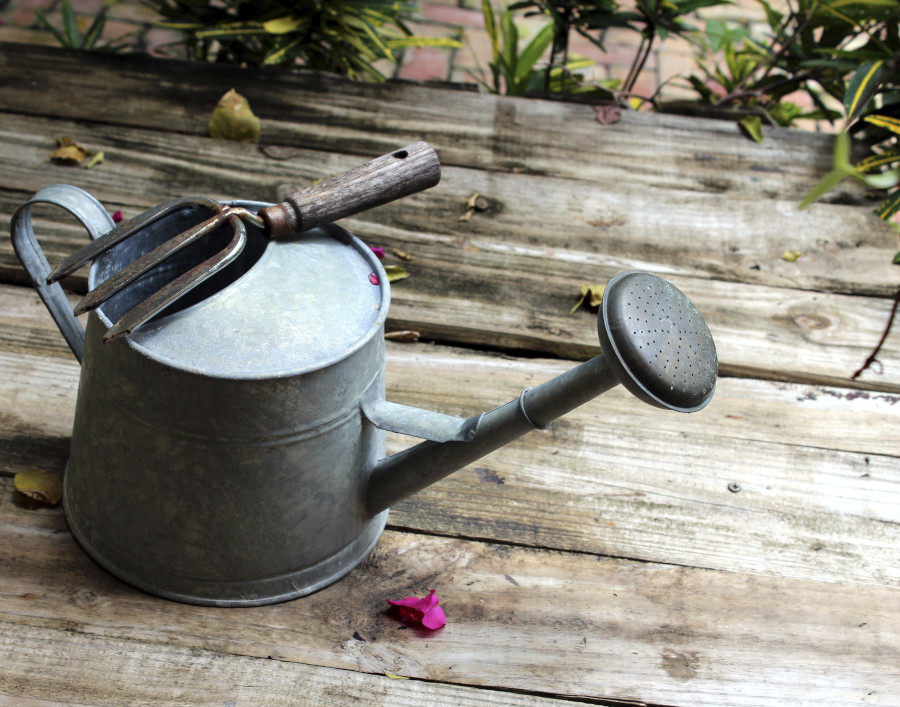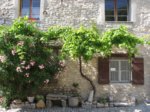A Practical Guide to Rainwater Harvesting in Rural France
Jan Brouwer, Monday, 22 January 2024

Introduction
As France experiences increasingly hotter and drier summers, the collection and reuse of rainwater have become more crucial than ever. With local authorities implementing tighter water consumption restrictions, rainwater harvesting emerges as a sustainable and self-reliant solution to meet the water demands of rural communities. This guide offers insights into effective and eco-friendly rainwater collection methods that align with French regulations.
Methods for Collecting Rainwater
Gutters: Essential for efficiently channeling rainwater into a storage system, gutters are installed along roof edges. Their regular upkeep is vital for optimal functionality.
Storage Tanks: Options for storage range from basic plastic barrels to more elaborate concrete or metal tanks, tailored to your specific water needs and budgetary considerations.
Required Materials and Costs
Gutters: Available in PVC or metal, their costs range from 3 to 10 euros per meter. Storage Tanks: A basic plastic barrel is priced at approximately 30 euros, while concrete or metal tanks represent a more substantial investment.
Filtration Systems: The price of filtration systems varies, depending on their complexity, from 20 to 200 euros.
Environmental Benefits and Regulations in France
Environmental Impact: Employing rainwater harvesting alleviates pressure on local water resources, particularly during droughts. This practice promotes sustainable water management by reducing surface runoff and conserving groundwater reserves.
Usage and Legislation: In France, rainwater is permissible for activities like garden irrigation, car washing, and other non-potable domestic uses. Its application for drinking purposes is regulated stringently. It is crucial to ensure your system adheres to local norms, available from your municipal office.
Conclusion
In the face of climate change, embracing rainwater harvesting in rural France represents a wise ecological and economical decision. It lessens reliance on public water systems and aids in cushioning the effects of water restrictions during dry spells. While initial outlays may appear substantial, these are balanced over time by savings in water expenses.
Design your rainwater harvesting system for free in just a few clicks
A 'citerne souple' is a flexible, leak-proof tank, typically made from materials like PVC or elastomer, designed to store large quantities of liquid, such as rainwater. This flexible tank is used for collecting and storing rainwater for later use, particularly for garden irrigation, vehicle washing, toilet supply, or, after treatment, for human consumption.
On YouTube, "I Drink My Rainwater" by Barnabé Chaillot has garnered 631,000 views – "After analysis, city water is ten times more polluted with nitrates than my water"
Our comprehensive guide is the perfect companion if you are considering moving to France or are already living there. Learn all about buying a house, mastering the French language, finding a job, experiencing the culture and discovering tourist attractions. With this guide, you'll have all the information you need to live successfully in France. Read on now to discover it all!

Introduction
As France experiences increasingly hotter and drier summers, the collection and reuse of rainwater have become more crucial than ever. With local authorities implementing tighter water consumption restrictions, rainwater harvesting emerges as a sustainable and self-reliant solution to meet the water demands of rural communities. This guide offers insights into effective and eco-friendly rainwater collection methods that align with French regulations.
Methods for Collecting Rainwater
Gutters: Essential for efficiently channeling rainwater into a storage system, gutters are installed along roof edges. Their regular upkeep is vital for optimal functionality.
Storage Tanks: Options for storage range from basic plastic barrels to more elaborate concrete or metal tanks, tailored to your specific water needs and budgetary considerations.
Required Materials and Costs
Gutters: Available in PVC or metal, their costs range from 3 to 10 euros per meter. Storage Tanks: A basic plastic barrel is priced at approximately 30 euros, while concrete or metal tanks represent a more substantial investment.
Filtration Systems: The price of filtration systems varies, depending on their complexity, from 20 to 200 euros.
Environmental Benefits and Regulations in France
Environmental Impact: Employing rainwater harvesting alleviates pressure on local water resources, particularly during droughts. This practice promotes sustainable water management by reducing surface runoff and conserving groundwater reserves.
Usage and Legislation: In France, rainwater is permissible for activities like garden irrigation, car washing, and other non-potable domestic uses. Its application for drinking purposes is regulated stringently. It is crucial to ensure your system adheres to local norms, available from your municipal office.
Conclusion
In the face of climate change, embracing rainwater harvesting in rural France represents a wise ecological and economical decision. It lessens reliance on public water systems and aids in cushioning the effects of water restrictions during dry spells. While initial outlays may appear substantial, these are balanced over time by savings in water expenses.
Links
Design your rainwater harvesting system for free in just a few clicks
A 'citerne souple' is a flexible, leak-proof tank, typically made from materials like PVC or elastomer, designed to store large quantities of liquid, such as rainwater. This flexible tank is used for collecting and storing rainwater for later use, particularly for garden irrigation, vehicle washing, toilet supply, or, after treatment, for human consumption.
On YouTube, "I Drink My Rainwater" by Barnabé Chaillot has garnered 631,000 views – "After analysis, city water is ten times more polluted with nitrates than my water"
Our comprehensive guide is the perfect companion if you are considering moving to France or are already living there. Learn all about buying a house, mastering the French language, finding a job, experiencing the culture and discovering tourist attractions. With this guide, you'll have all the information you need to live successfully in France. Read on now to discover it all!

Search for French property and real estate for sale in all regions of France. Fermettes, gites, houses, B&B’s for sale by owner. Houses for sale in Gironde, Dordogne, Landes, Calvados, Manche and Orne
 French people love to feast. There is always a reason, but especially a wedding, the football or rugby club championship and the end of the harvesting
or picking period are opportunities to take time for a party.
French people love to feast. There is always a reason, but especially a wedding, the football or rugby club championship and the end of the harvesting
or picking period are opportunities to take time for a party.